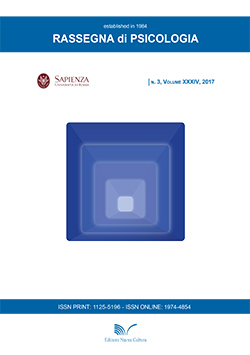Accuracy and completeness in children’s testimony: Relationships with working memory
DOI:
https://doi.org/10.13133/1974-4854/16679Keywords:
working memory, testimony, accuracy, children, suggestibilityAbstract
Accuracy, completeness and suggestibility in eyewitnesses depend on a number of memory systems, including working memory. The main aim of this study was to investigate the relationship between working memory and eyewitness accuracy in school-age children. Thirty three children between 8 and 9 years of age (M = 8.03) and 28 children between 12 and 14 years of age (M = 12.43) participated. They viewed the video of a bank robbery, freely recalled as many details as possible, and answered a series of leading and non-leading questions. The Corsi Block, the Stroop Interference and the Global-Local tasks were submitted to all groups. Results revealed clear age differences and recall performance was significantly associated to visuospatial span scores and RTs in both inhibitory tasks. Taken together, these findings confirm that working memory plays a central role in eyewitness accuracy.Downloads
Published
2017-12-04
Issue
Section
Articles
License
Copyright (c) 2017 Clelia Rossi-Arnaud, Giacomo Angelini

This work is licensed under a Creative Commons Attribution 4.0 International License.

